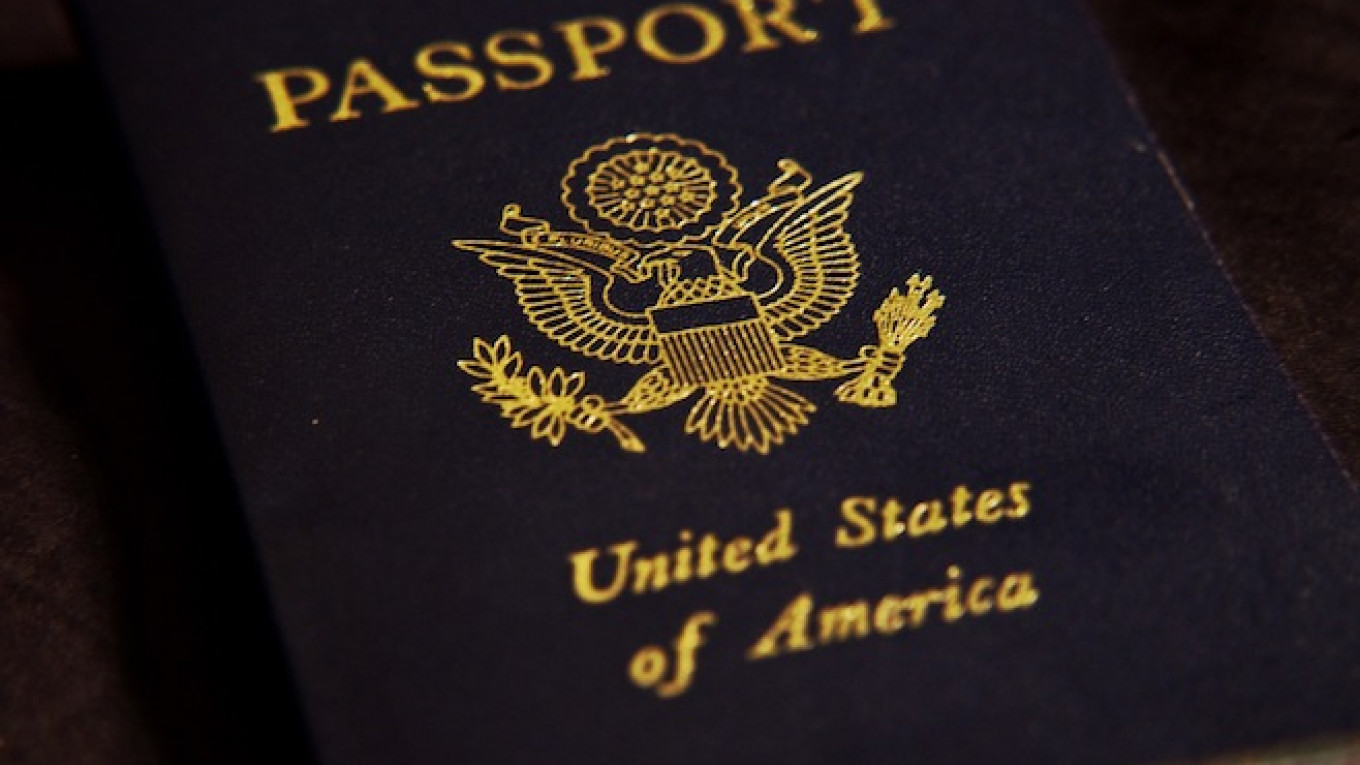A journalism workshop led by two prominent U.S. speakers in St. Petersburg has been canceled after immigration officials charged that the men had violated the terms of their visas and tried to get them deported from the country.
Joe Bergantino, a co-founder of the New England Center for Investigative reporting (NECIR) and Randy Covington, a University of South Carolina journalism professor, were accused of breaking the Russian law by participating in the Thursday workshop while being in the country on tourist visas, NECIR reported.
The St. Petersburg seminar, part of a series of educational workshops that Bergantino and Covington were holding in Russia, followed similar workshops in Moscow and was set to run in the northern city until Friday. But immigration officials on Thursday charged that their participation in a professional conference required a business visa.
Plain-clothed officers entered a conference hall at St. Petersburg's Sokos Hotel, where the seminar was taking place, and demanded to see the identification papers of participants as a "simple formality," reported the city's Fontanka news site, whose editor took part in the workshop.
The officers appeared to have been specifically looking for U.S. participants, the report said.
Beth Daley, a reporter at NECIR, told The Boston Globe newspaper that Bergantino and Covington were initially escorted into another room and asked several questions. After signing their statements, the two were briefly allowed to return to the workshop, she cited an email from Bergantino as saying.
"Five minutes later, they came back into the workshop room and asked us to go with them to the immigration service office," Bergantino wrote, The Boston Globe reported.
At a summary court hearing that followed, the immigration service demanded that the Americans be deported from the country, Fontanka reported. The judge instead ruled that Bergantino and Covington must take their return flights out of the country on Saturday as scheduled, but would be barred from resuming the workshop.
Bergantino and Covington had been specifically advised by U.S. State Department officials who frequently work with Russia about what types of visas they needed before traveling to Russia, The Boston Globe cited Daley as saying.
"We're concerned, obviously. In the past, Russia has been fine to allow journalism training to take place," Daley was quoted as saying. "We're not sure what changed, but given the political situation, obviously things are changing."
NECIR reported that its director's trip to Russia was funded by a U.S. State Department grant to the University of South Carolina. Covington had also visited Russia several months earlier on the same type of visa, and the trip proceeded without any problems, the university's journalism dean Charles Bierbauer was cited as saying by NECIR.
Moscow's anti-U.S. stance has increased in recent months, amid Western criticism of its annexation of Crimea and perceived support of separatists in eastern Ukraine. Bierbauer told NECIR that he had been pleased that previous journalism workshops had been allowed to continue despite the tensions.
A Message from The Moscow Times:
Dear readers,
We are facing unprecedented challenges. Russia's Prosecutor General's Office has designated The Moscow Times as an "undesirable" organization, criminalizing our work and putting our staff at risk of prosecution. This follows our earlier unjust labeling as a "foreign agent."
These actions are direct attempts to silence independent journalism in Russia. The authorities claim our work "discredits the decisions of the Russian leadership." We see things differently: we strive to provide accurate, unbiased reporting on Russia.
We, the journalists of The Moscow Times, refuse to be silenced. But to continue our work, we need your help.
Your support, no matter how small, makes a world of difference. If you can, please support us monthly starting from just $2. It's quick to set up, and every contribution makes a significant impact.
By supporting The Moscow Times, you're defending open, independent journalism in the face of repression. Thank you for standing with us.
Remind me later.






